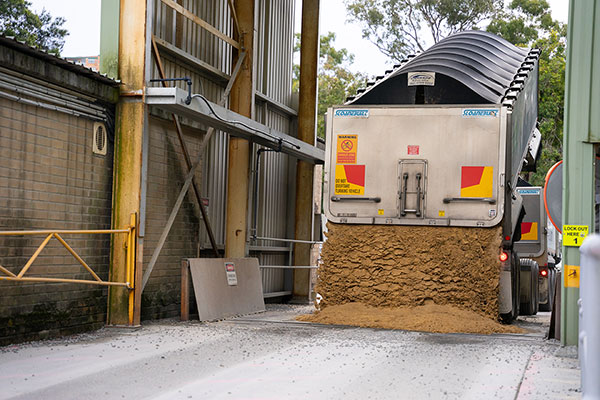Cyril Giraud spent the first few years of his career digging around in quarries, while Philippa Stone was sifting through London’s skips.
These early experiences sent them on career trajectories that are today helping to reshape the future of two essential but high-emitting materials: concrete and steel.
Concrete and steel are fundamental building blocks, but they also come with a large carbon footprint. Cement, an important component of concrete, and steel are considered ‘harder-to-abate’ sectors, meaning decarbonisation is extremely challenging. Both contribute around 8% of global emissions.
Trials of innovative products, like reduced carbon cement and low-emissions steel, are in the pipeline. But the best way to manage emissions is to first measure them – which is why both Cyril and Philippa are champions of environmental product declarations, or EPDs.
Cyril and Philippa sit on the board of EPD Australasia. This organisation is helping businesses in Australia and New Zealand to gain objective, science-based data about their products and services.
An EPD quantifies the lifecycle impact of a product, providing transparent information at every step of its lifecycle, from how the materials were sourced to its manufacture, transport and disposal.
Creating a new low-carbon concrete
Cyril, a trained geologist, started his career as an apprentice in France with one of the world’s largest building materials and aggregates companies. Two decades on, he leads the sustainable solutions team for Holcim Australia and New Zealand.
“I’ve always wanted to understand how the natural world works, and then to use that information to make better decisions,” Cyril says.
Concrete is like a cake, Cyril explains. “It’s all about the recipe. You’ve got sand, aggregate and water, and the binding ingredient is the cement. The cement holds the concrete together, but it also holds most of the carbon emissions.”
To reduce the amount of cement in the concrete, manufacturers turn to replacement materials, like flyash, a by-product of power stations, and slag, which is made during steel manufacture. “By rethinking the mix, we can reduce the amount of embodied carbon in our product.”
But with thousands of concrete mixes available – Holcim has more than 3,000 different mixes to choose from in Australia alone – how can customers be sure they are choosing a low-carbon product?
To answer this question, Holcim turned to EPDs and obtained the first in Australia for ready-mix concrete in 2019. “We wanted to measure our impact and to gain third-party verification so we could help our customers make better choices.”
Holcim’s ViroDecs™ product comes with an EPD “that covers our normal class concrete range nationwide”. But Holcim has taken this a step further, launching a new low-carbon concrete in April 2021, called ECOPact, that reduces embodied carbon by as much as 60%. Customers can also opt to offset the remaining carbon through the Australian Government’s Climate Active program.
“We are focused on carbon because it is one of the world’s key challenges. But as we move towards a circular economy, concrete has a huge role to play because it can be recycled indefinitely.”
Holcim has also signed a global net zero pledge and is the world’s first cement manufacturer to set its sights on zero emissions by 2050.
Sustainable steel in the spotlight
Philippa is just as passionate about the potential of the steel sector to drive down emissions. She started her career as a sustainability coordinator for a construction company in London. “I would spend a lot of time wading through skips to conduct waste audits on construction sites,” she says.
“I loved how hands-on my role was. I felt like I was making a difference – and I was making a difference.” For the last two years Philippa has been making a big difference to BlueScope’s ambitious sustainability agenda.
BlueScope was the first company in Australia to publish an EPD, and now has EPDs for four products. “We have a plan to expand our EPD offering and have recently achieved our first ecolabels with Global GreenTag, a significant step in our sustainability journey” Philippa notes.
“There is growing market demand for transparency because companies and consumers want to know what they are buying,” Philippa adds.
BlueScope is also a founding member of ResponsibleSteel™, the first global standard and certification initiative for the steel industry. “Some of the world’s biggest steel makers are working towards this standard. Like EPDs, ResponsibleSteel brings credibility to sustainability claims with the decarbonisation of the sector a key focus.”
Philippa is also an optimist. “As the sector decarbonises and heads towards 100% circularity, steel becomes a very compelling proposition from a sustainability perspective. We’re working hard on making this a reality.”
To find out more about EPDs, visit EDP Australia.
What is Zero In?
Zero In is sharing stories and getting to know the human face of sustainability in NSW – the people who are leading us to a sustainable, net zero future.
We all have a role to play in building a thriving, healthy and prosperous future. Together we can support our champions, and learn from their stories of action and change.
